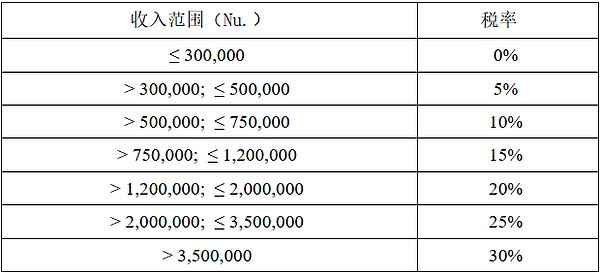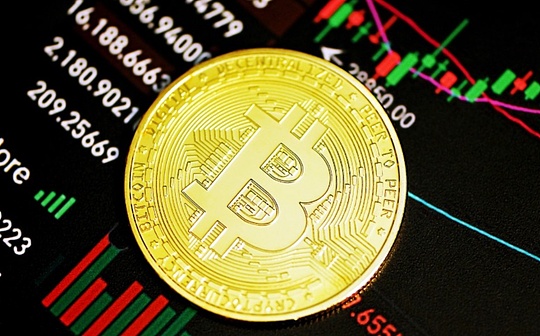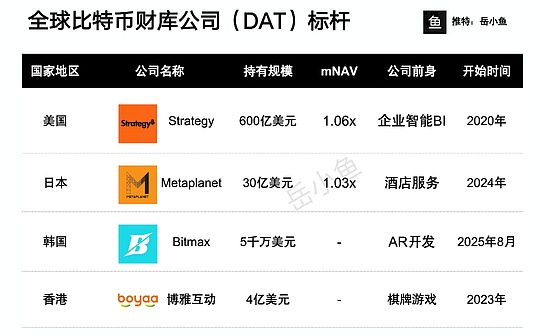
author:Gao Xian
1. Introduction
In recent years, Bhutan has continued to build Bitcoin mining farms based on its location advantages of hydropower and energy and its state-driven strategic development model, launching a “green mining revolution”.According to data released by Arkham Intel on June 27, 2025, the country has held a total of 12,062 Bitcoins since 2020, making it the third largest Bitcoin sovereign holder in the world.The reserve accounts for about 40% of Bhutan’s gross domestic product (GDP), making it one of the countries with the largest exposure to cryptocurrency assets in the world.In July 2025, Bhutan launched a national crypto payment system, allowing tourists to use cryptocurrency to pay visa fees, flights and local goods, becoming one of the first countries to enable crypto payments throughout the entire tourism ecosystem.Binance CEO Ricahrd Tang wrote a letter to Bhutan saying that Bhutan has opened up a path to innovation in cryptocurrency and paved the country’s vision with trust.However, in sharp contrast to the rapid booming cryptocurrency industry in Bhutan is the country’s slightly rough and in its infancy taxation and regulatory system.
2. Qualitative and basic tax policies for cryptocurrencies in Bhutan
2.1 Qualitativeness of cryptocurrencies
Bhutan has a more cautious attitude towards cryptocurrencies and does not use them as fiat currency, but as an asset subject to regulatory restrictions.But this does not prevent Bhutan from developing an increasingly open attitude towards crypto assets.Especially in January 2025, the Bhutan Special Administrative Region Gelephu Mindfulness City (GMC) announced that it plans to include Bitcoin (BTC), Ethereum (ETH) and Binance Coin (BNB) in its strategic reserve framework (regional level). This is a pioneering attempt, and the laws and implementation details are still being promoted. This means that Bhutan’s characterization of cryptocurrencies has surpassed ordinary commodities or properties, and has upgraded them to the national strategic reserve asset level.
2.2 Comparison of basic tax policies with their international
2.2.1 Overview of Bhutan’s Tax System
The modernization process of Bhutan’s tax system started relatively late. Since the 1960s, the government has gradually introduced monetized taxation. The Kingdom of Bhutan has established a modern comprehensive income tax system covering individual and corporate taxation. The Sales Tax, Customs and Consumption Tax Act of 2000 regulates the collection of indirect taxes.At present, Bhutan’s tax system mainly includes personal income tax, corporate income tax, sales tax and customs and consumption tax. Recently, new bills including the Income Tax Bill of Bhutan 2025 (hereinafter referred to as the “Income Tax Bill of Bhutan 2025 (hereinafter referred to as the “Goods and Services Tax Bill of Bhutan 2025 (hereinafter referred to as the “Goods and Services Tax Bill of Bhutan 2025 (hereinafter referred to as the “Goods and Services Tax Bill of Bhutan 2025 (hereinafter referred to as the “Goods and Services Tax Bill of Bhutan 2025) have been passed to further modernize the tax system.Currently, sales tax, customs and consumption tax are implemented in accordance with the Sales Tax, Customs and Consumption Tax Act of 2000, and the specific tax rate is announced by the Ministry of Finance (of which sales tax is currently 7%).But Bhutan plans to implement a 5% Goods and Services Tax (GST) starting from January 2026 to replace the existing sales tax.Since the new law will come into effect on January 1, 2026, this article will mainly introduce the new law.
2.2.2 Personal Income Tax
The personal income tax in Bhutan is based on the excess progressive tax rate, with a tax rate ranging from 0% to 30%, and is applicable to citizens, residents, and other individuals with incomes in Bhutan.The 2025 Income Tax Act merges the original personal income tax (PIT) and commercial income tax (BIT) under personal income tax to simplify the tax structure.According to the new law, the specific tax rates for individual income tax at all levels are as follows:

2.2.3 Corporate Income Tax
Bhutan’s corporate income tax applies to companies, groups and Significant Economic Presence.Under the new Income Tax Act, the tax rate is 22%, a decrease from the previous 30%, aiming to attract investment and support corporate development.
2.2.4 Sales Tax and the upcoming Goods and Services Tax (GST)
Currently, Bhutan has a sales tax rate of 7%, which applies to most goods and services.However, Bhutan plans to implement a 5% Goods and Services Tax (GST) in 2026 to replace the existing sales tax, thereby unifying the tax system, simplifying tax compliance, and integrating with international standards.
2.3 Cryptocurrency Tax Policy and Latest News
Bhutan has not issued specific tax laws specifically for Bitcoin or other cryptocurrencies.While the country is involved in cryptocurrency mining and supports digital infrastructure, it does not treat cryptocurrencies as fiat currency and does not offer specific tax relief.Under the framework of Bhutan’s current tax legislation, potential taxable events related to cryptocurrencies occur when a revenue generated from cryptocurrency mining, investment or transaction (selling or exchanging) or accepting payments for cryptocurrencies as goods or services, or even simply holding digital assets, may lead to the application of the current tax.
When the Income Tax Act was revised in 2024, mainstream domestic media in Bhutan reported that according to relevant officials of the competent department of the Department of Revenue and Customs, the amendment to the Income Tax Act will consider using digital assets such as cryptocurrencies as sources of income for personal income tax.However, the new Income Tax Law does not specifically specify that cryptocurrencies are taxable income for personal income tax, but stipulates four types of taxable income: income from employment, business income, investment income from other sources; cryptocurrencies are only used as a form of “supplies of digital assets”, thus forming “digital services”.From this point of view, Bhutan is still cautious in cryptocurrency taxation, and the specific regulations are still relatively vague.But it is certain that companies will pay income tax at a 22% tax rate for providing crypto asset-related services.It is also worth noting that when cryptocurrencies are considered property in the sense of tax purposes, capital Gains Tax will increase.By applying the interpretation of the current income tax law, Bhutan may still tax the relevant income on “investment” or “income from other sources” based on the time of holding crypto assets and the nature of the transaction.Regarding the goods and services tax, the new law does not explicitly stipulate whether cryptocurrency transactions are taxable.
3. Bhutan’s regulatory framework for cryptocurrencies
3.1 Basic framework of cryptocurrency regulatory system
Bhutan’s regulatory system has undergone a transition from pilot to full promotion.The cryptocurrency regulation in Bhutan is mainly under the responsibility of the Royal Currency Authority (RMA), and is implemented through the “Sandbox Framework for Cryptocurrency Mining Supervision” released by the RMA in 2019, emphasizing strict compliance supervision of crypto-related businesses.The framework is designed to ensure that mining activities comply with national laws, protect investors and consumers, and support innovative technology applications.More specifically, the framework requires cryptocurrency mining companies to comply with KYC and AML specifications and obtain different forms of RMA approval to prevent abuse of cryptocurrency for illegal activities and ensure that no financial risks arise.In 2024, Bhutan further improved its regulation, requiring crypto businesses operating in the country to obtain licenses and conduct comprehensive risk disclosures to protect cryptocurrency investors.This framework emphasizes anti-money laundering and investor protection, not only in line with the FATF standards, but also in line with global concerns about the security and integrity of financial transactions in the cryptocurrency sector.
3.2 Latest news about the cryptocurrency regulatory system
Bhutan is positive and open to cryptocurrencies, not only accepting cryptocurrencies, but also integrating them into national development strategies, especially establishing sovereign reserves of Bitcoin, utilizing its hydropower resources for green mining, and using it as a tool for economic diversification.In this process, Bhutan has been constantly updating its cryptocurrency regulatory system.
According to the latest notice of the Royal Bhutanese Monetary Authority announcement on May 30, 2025, “RMA’s Regulatory Stance on Crypto Currency”, the Royal Bhutan will adopt a staged and focused cryptocurrency regulatory strategy for cryptocurrencies, and support responsible innovation while protecting citizens’ rights and financial stability.Based on this policy, while continuously monitoring field dynamics and strengthening the construction of national cryptocurrency capacity, RMA officially announced the following positions:
(1) Cryptocurrency mining and trading business is only carried out by registered entities and cooperative enterprises in Grep Mindfulness City, and must comply with the GMC regulatory framework;
(2) Crypto transactions through domestic banks regulated by RMA will continue to be restricted.
The latest regulatory provisions show that despite several restrictions, Bhutan’s future policies may continue to support cryptocurrency development.It should be noted that given Bhutan’s famous “Gross National Happiness” concept, its cryptocurrency policy may remain relatively cautious, and emphasize investor protection, sustainability and social benefits to balance economic innovation and financial stability.
4. International comparison and future prospects
4.1 International comparison
A brief comparison of Bhutan with other countries focusing on the development of cryptocurrencies can reveal the following macro differences: First, in terms of the monetary system, El Salvador regards Bitcoin as the fiat currency of the entire economic system and promotes cryptocurrencies in a more legally compulsory way. Bhutan has not yet declared any cryptocurrency as fiat currency and has not subverted the existing fiat currency system.Second, in terms of promoting the subject, unlike Switzerland promoting blockchain through private innovation and market forces, Bhutan participates in it through national entities such as Druk Holding & Investments and DK Bank, and then integrates cryptocurrencies into national development plans, which is similar to the United States’ continued legislation on crypto assets.Third, in terms of global positioning, the United Arab Emirates, the United States and others are committed to building themselves into global crypto hubs, but Bhutan has a completely different positioning. Its encryption strategy is not to pursue a global central position, but to focus on empowering local development goals – to improve local regional connectivity, openness and financial inclusion through the widespread adoption of crypto payment systems, thereby supporting the development of the tourism industry.
Specifically in terms of the details of the tax system, Bhutan’s tax system is also quite distinctive.Bhutan’s tax policy is relatively loose, allowing cost deductions and adopting excess progressive tax rates, reflecting its friendly attitude towards small and medium-sized investors. India, which also belongs to South Asia, imposes a unified tax rate of 30% on cryptocurrency income, and does not allow the loss to be deducted from other income, and the tax environment is relatively strict.But compared with European countries such as Portugal to attract cryptocurrency users with tax benefits, Bhutan does not widely provide tax benefits. It focuses on providing daily applications to locals through merchant payments and digital tools, and then promoting cryptocurrencies.At the same time, compared with the United States, which is also an important sovereign holder of Bitcoin, the United States is relatively fine and transparent in cryptocurrency taxation and regulatory legislation, and has a clear position to maintain its leading position; Bhutan does not set up special crypto taxes, but instead spreads cryptocurrency income to existing taxes and tax items to collect taxes. The regulatory framework is relatively simple and the regulatory stance is cautious.
4.2 Future Outlook
In terms of regulation, Bhutan’s cryptocurrency regulatory system reflects the concept of combining prudence with open innovation, especially the regulatory system focusing on anti-money laundering and investor protection is in line with the international level, but the transparency of the regulatory system still needs to be improved, and regulatory details still need to be improved, and there is certain uncertainty.In particular, according to the latest announcement from the competent authorities, the geographical restrictions and control of related businesses will continue.In the future, Bhutan may become a global model for green development of cryptocurrencies. Its policies will continue to support the development of cryptocurrencies, focusing on capacity building, risk isolation and sovereignty control, and regulatory details will be further optimized.
In terms of taxation, Bhutan’s tax system is in a period of transformation.In recent years, the adjustment of Bhutan’s personal income tax and corporate income tax reflects the government’s balanced considerations for economic development and social equity, and the implementation of GST will further simplify the tax structure.Nevertheless, Bhutan’s position on taxing cryptocurrencies remains somewhat vague due to the lack of specific laws, regulations or guidelines, and related tax matters are still in a gray area.In the future, Bhutan’s tax policy may continue to develop in a more transparent and efficient direction, and in cryptocurrency tax policy, it may remain in the status quo for some time in the future. This provides space for flexible handling of cryptocurrency-related tax issues, and on the other hand, it also brings uncertainty and risks to cryptocurrency taxation.We believe that a positive attitude towards cryptocurrencies will prompt Bhutan to form a relevant tax framework that is conducive to the development of the crypto industry as soon as possible.







